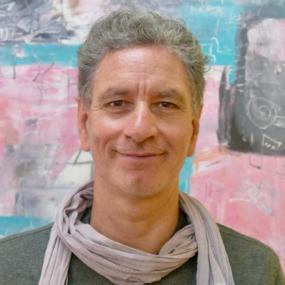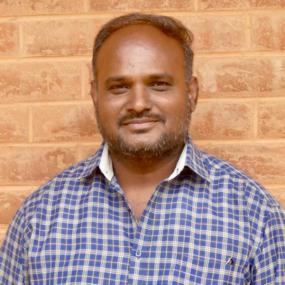Department of Electric & Electronic Technologies
The Gross National Product (GNP) of a country's economy is directly linked to the level of consumption of energy. The problem is that fossil energy will become scarce and be at the centre of conflict between countries. Furthermore, fossil fuel energy is polluting and causing a change in the climate. In such circumstances, green energy will become the highest importance. No doubt that the students who will have been trained in Green Energy will be the key players of tomorrow.
Faculties

Mr Jorge Ayarza - B.Sc - Master trainer
Designation: Adjunct Faculty
Specialization: Electrical Engineering and Renewable Energy
Tel: (+91) 97862 96441 - Email: minvayu.csr@auroville.org.in
I have been in the area of renewable energy, plastic recycling, and computer-controlled machinery industry for over 30 years, such as plastic recycling, machine design, small hydro turbine, and small wind turbine design and manufacturing.
Founder of renewable energy social enterprise in India, my teaching is mainly project-based.
I love to share my mindset: "Waste are not waste anymore but opportunities" to build new products, or have new sources of energy. It is a very different way to see the world around us which makes the students much more creative and efficient.

Mr S. Manikandan - B.Tech
Designation: Senior Instructor
Specialization: Electrical and Electronics Engineering
Tel: (+91) 98943 24078 - Email: sekarmani10@aiat.in
Before embarking on the journey of inventing something new, it is crucial to familiarize yourself with the existing inventions and understand how they work. This will not only give you a solid foundation for your own innovations but also demonstrate the importance of studying and appreciating the developments that came before us. So let's delve into the world of existing inventions, learn from them, and be inspired to create even more remarkable ones."
I approach teaching electronics with a focus on answering the "why" behind each concept and component. My classes are not just about rote memorization, but about understanding the underlying principles and applications of electronics.
By asking "spark putting questions" and explaining the reasoning behind the design and function of electronic components, I aim to inspire curiosity and critical thinking in my students, helping them to build a deeper understanding of electronics that goes beyond memorization and into a true appreciation of the field.

